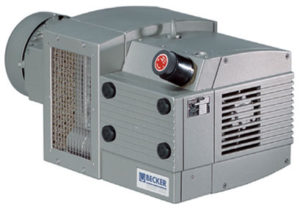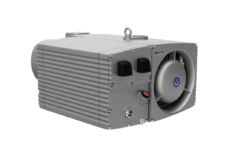Sourcing a vacuum system should never be done on a whim. The investment not only has an initial purchase cost, but also an ongoing financial impact from operations and upkeep. When choosing among alternatives, you’ll find manufacturers of both Venturi vacuum systems and motor-driven (mechanical) vacuum pumps.
To get you familiar with your options, Venturi generator manufacturers include companies like Air-Vac Engineering, Gast, SMC Pneumatics, Thomas, and PIAB. While Becker, Busch, Travianni, G-D, Dekker, and Gast are examples of mechanical vacuum pump manufacturers.
No one benefits in the long run if you end up with a vacuum that isn’t right for your business, so take time before coming to a final decision.
7 Factors to Consider Before Choosing a Venturi Generator or Mechanical Pump
Here are seven things to compare before purchasing a vacuum pump.
Energy Costs
OEMs often supply Venturi vacuum systems. And it may seem like a deal at first, as the upfront cost is less than a mechanical vacuum pump, saving you a small amount on the initial investment.
However, there are additional costs, such as maintenance, that come with a large air compressor. And more importantly, depending on the size and type of Venturi vacuum, the energy needed to run the supporting compressor is between eight and 17 times the required horsepower of a standalone mechanical pump.
For example, a Becker Model KVT 3.100 uses a 5 HP motor, whereas the comparable Venturi generator uses between 40 and 50 HP worth of compressed air. That’s eight times more electrical costs to run the Venturi than a mechanical vacuum pump!
Do you realize how huge that is?
Energy prices have risen year-over-year for more than a decade, and using a system that chugs electricity will, inevitably, get more costly as time goes on.

Moving Parts
While the actual Venturi suction system has no moving parts, the compressor that runs it has plenty (significantly more than a mechanical pump). Of course, an increased load on the compressor will require more frequent maintenance procedures, meaning replacement of all those wear parts and increased oil changes.
Air Compressor Capacity
If your in-house air compressor is close to using its full capacity, an additional compressor (and air dryer, filter, and regulator) will need to be purchased to satisfy the requirements of a Venturi. That is not an economical option.
Heat Output
While a mechanical vacuum pump generates heat, a Venturi’s compressor will generate about 8-10 times more, at 2,546 BTU/HP, because its motor is 8-10 times larger.
Noise Levels
A Venturi generator needs to vent air, creating noise levels almost 16 times louder than a mechanical vacuum pump. Yes, a vacuum pump makes noise, too, but it can be remotely located if desired.
Piping Requirements
A Venturi vacuum system must have compressed air piped to it, which is extremely costly to install unless the machine is pneumatically operated and piping is already in place. A mechanical pump goes under or next to the equipment it supports, thus eliminating any piping needs.
Compressor Failure
If your shop air compressor fails for any reason, the primary source of your Venturi vacuum is out of commission. The resulting downtime will cost you in production loss and work hours. With a mechanical vacuum pump, you only need one backup pump for all of your machines to ensure uptime.
Selecting The Best System For Your Investment
As you can see, a Venturi vacuum generator may sound good at first, but it will come back to bite you in the company wallet. Over time, mechanical vacuum pumps are more reliable and end up costing you less—so choose wisely.
Click the button below to see our selection of trusted Becker mechanical vacuum pumps.

